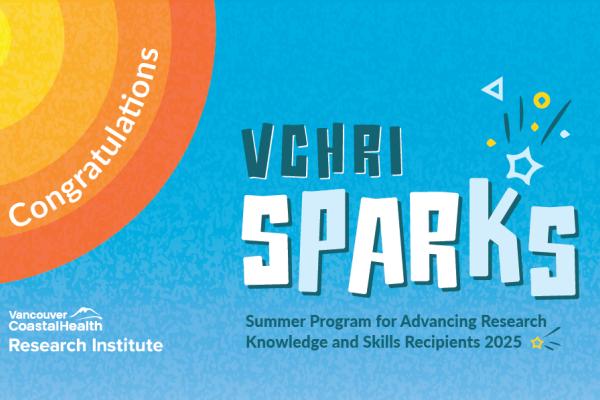
Spontaneous coronary artery dissection: poorly understood and under-diagnosed.
A study being led by Vancouver Coastal Health Research Institute scientist Dr. Jacqueline Saw is the largest of its kind to date investigating spontaneous coronary artery dissection (or SCAD) – an under-diagnosed and poorly understood heart condition that leads to heart attacks mostly in young women who are otherwise healthy.

SCAD is a condition characterized by a tear or split – that is not caused by any trauma, catheter, or surgical procedure – in the walls of the arteries that supply blood to the heart muscles. Blood can accumulate at the location of the tear or split, which subsequently blocks or slows blood flow, causing a heart attack. And because of poor diagnostic tools, until recently SCAD blockages have often been missed on angiograms or mistaken for cholesterol blockages, leaving the condition undiagnosed.
“Previously this condition was thought to be rare because the gold standard by which we diagnosed it was through an angiogram, which is unfortunately not sensitive enough to look for many SCAD-related tears,” explains Dr. Jacqueline Saw, clinical associate professor in the Division of Cardiology at the University of British Columbia, program director for the Vancouver General Hospital (VGH) Interventional Cardiology Fellowship Program, and previously head of the VGH Cardiology Clinical Trials Research.
“With better imaging tools such as intravascular ultrasound or optical coherence ultrasound, which utilizes light to look at the artery walls, we can actually see that some of these blockages are not cholesterol but blood in the artery wall instead.”
Dr. Saw and her research team were among the earliest groups to discover a very strong and important link between SCAD and fibromuscular dysplasia (FMD), which is a disease of the blood vessels that causes abnormal growths in the arterial walls. Similar to SCAD, FMD affects mostly women.
“We routinely screen SCAD patients for FMD and we find that 70 to 80 per cent of patients with SCAD have FMD,” she says. Other potential SCAD risk factors include increased exposures to progesterone and estrogen through pregnancy. Such exposures weaken these coronary artery walls and make them more prone to tear. Stresses and physiological changes with labour and delivery can also be precipitant factors.

Study aims to improve understanding of SCAD, ability to diagnose, and treatment management post-heart attack
Dr. Saw is leading the Canadian SCAD Study, which seeks to uncover the disease's natural history and predisposing medical conditions that result in changes in the arteries. The study will be the largest prospective SCAD cohort to date and it aims to improve treatment strategies, and long-term cardiovascular outcomes for SCAD. Dr. Saw hopes to enrol 750 to 1,000 participants mostly from Canada.
“When we amass a large patient population like this we can really get a better idea about the predisposing conditions and the long-term cardiovascular outcomes related to SCAD,” she says. “Hopefully this helps us establish guidelines on how to manage these patients.”
Proper management of SCAD patients is especially important because traditional methods for treating cholesterol-related heart attacks, such as via stenting, have proven markedly less effective in SCAD patients.
“Because most SCADs heal spontaneously, management of such patients should be conservative unless they have hemodynamic instability or ongoing ischemia,” says Dr. Saw. “Long-term outcomes for the most part are generally pretty good and the majority of patients who present with SCAD have mild severity. In the contemporary series, in-hospital mortality is less than five per cent.”
Through the Canadian SCAD Study, Dr. Saw also hopes to see improved diagnosis of the condition and for more women to be aware of their risk.
“When women present with chest pains, SCAD has to be one of the differential diagnoses because managing the condition, as far as what we’ve learned, is quite different,” she says.
“I’d also like the study to be a reminder for young women to not ignore their chest pains and dismiss the possibility of a heart attack, even if they’re fit and don’t have the typical heart disease risk factors such as diabetes, smoking, or obesity.”


